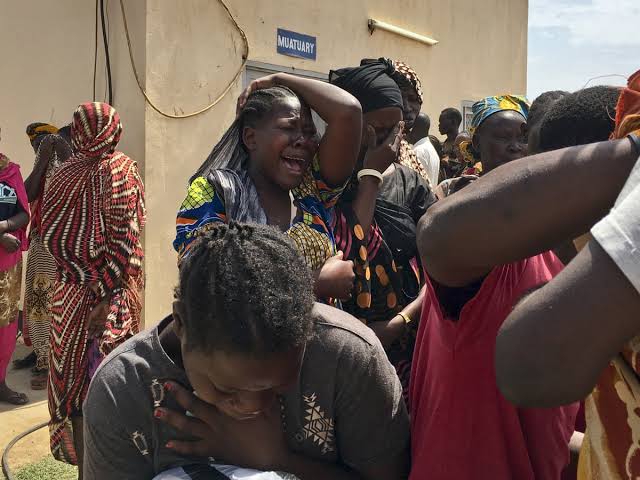The UN Mission in South Sudan (UNMISS) on Monday, strongly condemned the widespread sexual violence, as well as killings, including beheadings, burning alive of civilians, and attacks on aid workers in Leer County.
UNMISS, in a statement, said these were among the human rights violations documented during a surge in violence carried out by armed youth from Koch and Mayendit counties between February and April 2022.
Between Feb, 17 and April 7, some 72 civilians were killed, at least 11 injured, and 64 cases of sexual violence recorded, according to UNMISS human rights teams, which had conducted 10 verification missions to the area.
Two survivors reported that they were repeatedly raped and gang-raped after they came out of hiding to find food for their children.
Another woman who had recently given birth recounted that she was raped and severely beaten for three days.
“I am strongly appalled by these horrific attacks on civilians in Leer,’’Nicholas Haysom, Special Representative of the UN Secretary-General for South Sudan and head of UNMISS, said.
“We must all do everything we can to ensure that victims and survivors get the justice they deserve and receive the care and support they need,” he added.
Initial reports from Leer County located in Upper Nile state, indicated that some 40,000 people had fled the violence, with thousands reportedly crossing the Nile to Fangak, a community in Jonglei state.
Thousands of cattle were raided during the attacks, while homes, humanitarian facilities and warehouses were looted and burned to the ground.
Meanwhile, the wet season had already begun, along with risks of floods, making conditions dangerous for thousands of displaced families.
UNMISS was also investigating violence in Mayendit and Koch counties, including Mirmir Payam.
The mission had deployed additional peacekeepers to conduct regular patrols, including night patrols in Leer town, to avert further loss of life.
While UN peacekeepers were providing protection to displaced people, and the humanitarians serving them, UNMISS emphasised that civilian protection was first and foremost the responsibility of the government.
The mission had welcomed initial steps taken by the authorities, including the formation of an investigation committee and the deployment of troops to restore security.
UNMISS engaged with leadership at the capital and state level to mitigate violence. Civil affairs teams were also meeting with communities to conduct focus group discussions in conflict-affected areas.
“The mission urges national and local authorities to take immediate measures to reduce tensions and prevent further escalations and retaliatory attacks.
“Impunity on violations of human rights must end and perpetrators held accountable for these horrible crimes,’’ Haysom said.
In a related development, women in South Sudan had been pleading for peace, the top UN humanitarian official, Sara Nyanti in the country, said on Monday, following a visit to Unity and Upper Nile states from April 22-23.
Nyanti led a high-level delegation to the state capitals, Bentiu and Malakal, respectively, to assess needs on the ground and to meet with people affected by ongoing violence and natural disasters.
Displaced women spoke of how insecurity, rape, and lack of livelihood opportunities and education are impacting their lives, stating “this is not the life we chose”.
Nyanti also condemned the ongoing violence in Leer County, and conflict tensions across the country in the strongest terms.
The surge in fighting this month had resulted in widespread devastation, she added, with numerous people reported killed and wounded, women abducted and raped, homes burned, and property looted.
“These atrocities happened at the time when humanitarians are responding to mitigate suffering as a result of rains and standing water from the 2021 floods as well as preparedness activities to mitigate the impact of the oncoming rains and projected flooding,” she said.
In 2022, some 6.8 million of the most vulnerable people in South Sudan would need urgent life-saving assistance and protection.
A 1.7 billion dollars humanitarian response plan for the country is currently only around eight per cent funded.


